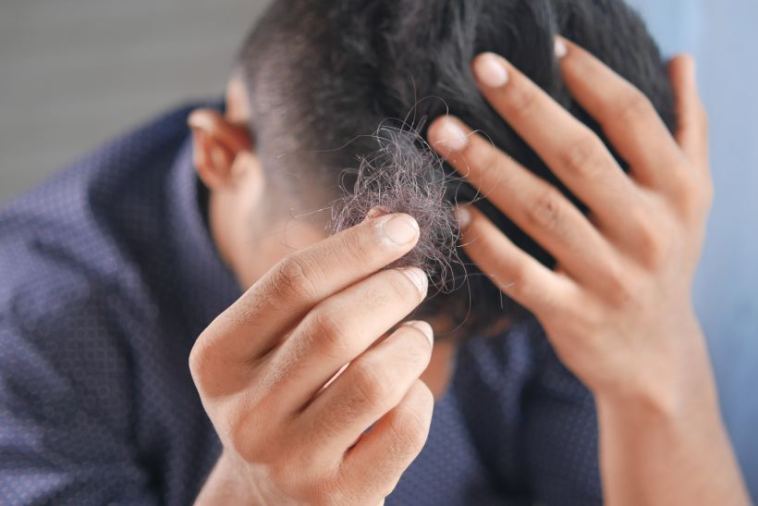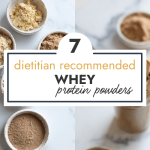- Like
- SHARE
- Digg
- Del
- Tumblr
- VKontakte
- Flattr
- Buffer
- Love This
- Save
- Odnoklassniki
- Meneame
- Blogger
- Amazon
- Yahoo Mail
- Gmail
- AOL
- Newsvine
- HackerNews
- Evernote
- MySpace
- Mail.ru
- Viadeo
- Line
- Comments
- Yummly
- SMS
- Viber
- Telegram
- JOIN
- Skype
- Facebook Messenger
- Kakao
- LiveJournal
- Yammer
- Edgar
- Fintel
- Mix
- Instapaper
- Copy Link
Introduction
Each strand of your hair has an average lifespan of 2-5 years. After this period, your hair follicles experience a cycle of rest, wherein you suffer hair loss. The underlying reason for hair fall could also be a health condition such as pregnancy, scalp infection, thyroid problem, or stress. It can also be a side effect of a medication like chemotherapy.
Whatever the reason, you can always prevent and stop hair fall and make your hair healthier. Here’s how.
10 Tips to Prevent and Stop Hair Fall
Follow these simple but effective hair health tips to make your hair less likely to fall out…
1. Washing with Soft Water and Mild Shampoo
Using a mild shampoo with soft water is the key to having a healthy scalp and hair. Hard water and shampoos with harsh chemicals affect the composition of the hair and pull natural oils from the scalp, which triggers hair fall.
Regularly washing your hair with a gentle shampoo and soft water keeps your scalp healthy and protects the hair follicles. You can invest in a water softener to reduce hardness levels of water and get softer, contaminant-free water to promote a healthy scalp and retain natural oils in the hair.
2. Gentle Handling of Your Hair
If you tie your hair in high ponytails, tight buns, or braids, the chances of your hair pulling out from roots are enormously high. Therefore, make sure to not tie your hair too tightly.
Moreover, allow your hair to air-dry before styling after every wash. If you’re in a dire need of using styling tools on your wet hair, try heat protectant spray before putting your hair at the risk of going brittle. Hot iron boils the water in your hair, making them quite brittle and an easy target to damage.
3. Use a Soft Brush
Combing your hair with a brush with soft, natural fibers helps promote healthy oil levels on your hair. Make sure to brush your hair daily to keep your hair from getting tangled. Moreover, brush your hair in the right direction to smoothen and condition your hair cuticle and retain keratein protein. Start a few inches off the bottom, then start at the top and continue through to the ends.
4. Use Organic Dyes
Chemical hair dyes can damage your hair and scalp, big time. A better alternative for you is opting for organic hair dyes free of harsh chemicals such as peroxide, ammonia, or para-phenylenediamine (PPD) that can be harmful to your scalp and hair. Organic dyes make your hair shinier, more vibrant, and healthier.
5. Avoid High-Heat Hair Styling Tools
Using high-heat hair styling tools such as hair dryers, curling irons, and hair straighteners dehydrate your hair follicle and make your hair more prone to damage. Therefore, make sure to avoid excessive use of these tools on your hair.
6. Healthy Diet
Research conducted in 2018 highlighted that the intake of fresh herb and raw vegetables at least thrice a week helps reduce the onset of female/male pattern baldness. A 2017 survey conducted on 100 people suffering from hair loss diagnosed nutritional deficiency in them. Therefore, researchers suggest that a protein-rich diet, such as beans, eggs, nuts, peas, fish, chicken, turkey, etc., can help recover the deficiency.
7. Massage
A study conducted in 2016 found that people who massaged for as little as four minutes a day over 24 weeks had seen remarkable results. Olive oil and coconut oil also make amazing choices for massaging your scalp. Olive oil conditions your hair and protects it from any damage resulting from dryness. Likewise, coconut oil improves blood circulation in the scalp and ensures better hair growth.
You can also use essential oils as they help decrease the process of hair fall. A study shows that cedarwood oil mixed with rosemary and lavender promoted hair growth in 43% of participants.
8. Multivitamins
After careful analysis, scientists have a consensus that the deficiency of vitamin A, B, C, D, zinc, iron, etc., is directly correlated with hair loss. Doctors generally advise taking 800 – 1000 IU of vitamin D daily for better hair growth. Vitamin A consists of retinoids, widely-known for accelerating hair growth. You can have that in the form of sweet peppers, sweet potatoes, spinach, supplements, etc. Vitamin H or B7 facilitates the synthesis of fatty acids in the body. If this synthesis meets hurdles, you’ll experience hair fall. To avoid it, an intake of a safe dose of vitamin B7 around 3 -5 mg is typically recommended.
9. Crude Onion Juice
Applying crude onion juice on your scalp twice a day is known for the regrowth of already-fallen hair. Thanks to the sulfur content of crude onion, 87% of study participants reported a considerable improvement in the overall hair condition.
10. Laser Treatment
Laser treatment improves the overall density of hair. It’s primarily used for people who suffer hair loss either due to chemotherapy or genetics. You will have to take multiple sessions before the results start pouring.
The Bottom Line
While it’s not always possible to prevent hair loss completely as we age, there are definitely simple but effective ways you can reduce the likelihood of hair loss.
Washing with soft water and mild shampoo, handling your hair gently, using a soft brush, and consuming a healthy diet are all ways you can make your hair less likely to fall out.
Try out the other tips in this guide as well and you should experience great results. Of course if hair loss still occurs, hair transplant surgery is always an option you can consider.


